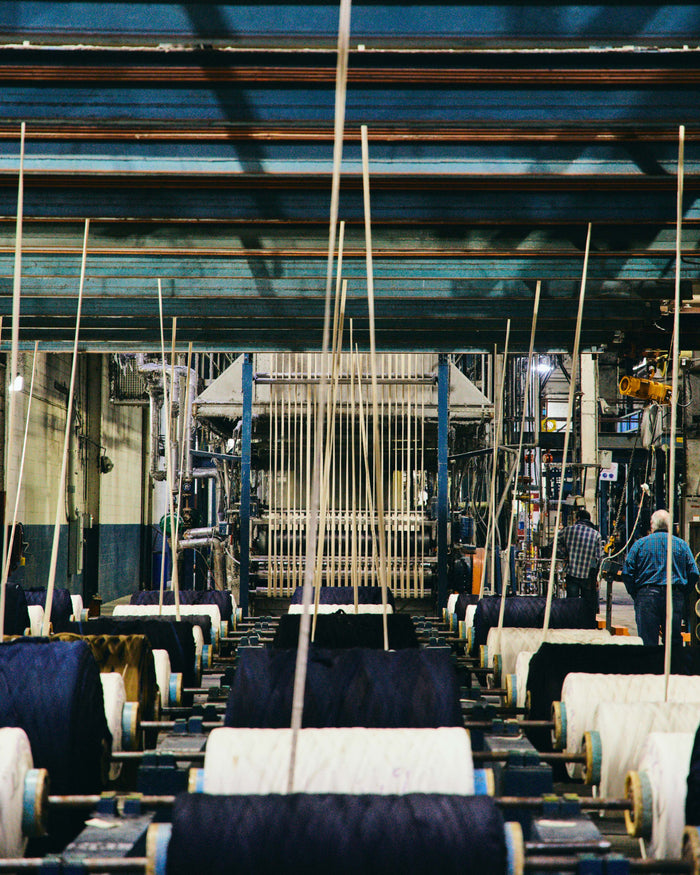the cotton project pt. ii
( natural indigo )
farmed regeneratively,
and dyed using locally
grown natural indigo

four years ago, we embarked on a project centered on taking our commitment to domestic manufacturing to the next level.
we started with the second half of our uniform, a plain white t-shirt (more on that here), but from day one, we knew we wanted to continue these efforts with our first love: blue jeans.
while using our regeneratively farmed cotton was the foundation of this next step, we knew we wanted to take it even further.
we wanted to use natural indigo.
stony creek colors
just thirty miles north of our home nashville, lies Stony Creek Colors: a regenerative farm that grows plant-based dyes throughout the southeast, including natural indigo.
we met Stony Creek's founder, Sarah Bellos, a few years ago while she was in the beginning stages of this ambitious, inspiring endeavor. she founded Stoney Creek Colors with the intent of producing natural indigo the way it used to be made: as a 100% plant-based dye, all while practicing regenerative farming practices.
we met Stony Creek's founder, Sarah Bellos, a few years ago while she was in the beginning stages of this ambitious, inspiring endeavor. she founded Stoney Creek Colors with the intent of producing natural indigo the way it used to be made: as a 100% plant-based dye, all while practicing regenerative farming practices.

synthetic indigo, which is used in the majority of indigo dying processes, requires significant amounts of chemicals to process. the use of synthetic indigo on a larger scale can also lead to runoff that damages the surrounding environment. for well over a century the lion's share of denim worldwide has been made using synthetic indigo. by 1914, it had replaced 95% of natural indigo use.
while using natural indigo requires a substantially larger investment than its synthetic counterpart, the intent of The Cotton Project is based on practices that do not further harm the environment and also support community-driven production methods.
so, we made a significant purchase of natural indigo with a new objective: using our own cotton and indigo to produce a pair of jeans... the next question was how to do it.

there are very few denim mills still remaining in the United States, and even fewer options for indigo dye ranges -- the only one still in operation today is located at the historic Mount Vernon Mills in nearby Trion, GA.
while Mount Vernon has been in operation for over 175 years, they had never once utilized natural indigo... but their team was willing to take a big risk in uncharted territory.
in order to avoid any cross-contamination, they stopped production at their dye range, cleaned the dye vats, and filled them with natural indigo from Stony Creek Colors -- then prepared our Cotton Project yarn for dying.
to be honest, both we and Mount Vernon weren't sure what the results would look like, but the final product was a beautiful, deep indigo shade that was better than we could have hoped for.

trion, ga
once loomed into a killer, 15oz wide-width denim, the fabric was then cut and sewn into two of our utilitarian patterns as a nod to the workwear history of Mount Vernon: the hencye double-knee workpant, and the augusta carpenter pant.
in our eyes, this is truly only scratching the surface of what we can do while making an effort to promote regenerative farming and shortened supply chains.
for us, these two jeans and the cotton project tees that preceded them are both a statement of commitment and a challenge to the apparel industry.
by seeing through the entire process from planting a seed to releasing a garment, we want to challenge the prevailing model of exporting American cotton overseas for production. in the process, we can reinvest our own efforts back into the communities close to home.





















































